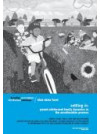This study looks at the relationships between 39 migrant and refugee parents and their teenagers as they settle into New Zealand.
The report shows these migrant parents are generally coping well but many think they are the only ones having problems and that they will lose respect and bring shame on the family if others know of their difficulties. Opening lines of communication within the family, between government or community agencies and families, and between different ethnic groups, would help ease these feelings of isolation.
Purpose
The major aims and objectives of the report are to:
- document the experiences of migrant and refugee families in New Zealand from the points of view of both the parent and the adolescent
- explore the areas of agreement and disagreement within the family, with a focus on issues of convergence and divergence between parents and children
- document the variety of ways in which families from diverse cultural backgrounds understand and negotiate their acculturation experiences
- explore the changing dynamics in newly arrived families in New Zealand.
Methodology
The study took place in the Wellington City region during the period August 2007 to December 2007. Over this period, six interviewers interviewed a total of 39 recently arrived migrants and refugees. Ethical approval was obtained from the School of Psychology Human Ethics Committee at Victoria University of Wellington to carry out this study. The interview schedule that was used was devised through a literature review and modified in consultation with experts and members of the community. Questions were taken and adapted from existing measures of family dynamics; specifically, the issues checklist (Robin & Foster, 1989) was used to elicit common areas of disagreement in the family. Due to the cultural diversity of the participants and the lack of multilingual interviewers, most of the interviews were carried out in English. This did not constitute an issue for the majority of the participants, and where language barriers did cause a problem, family members assisted in translation. The duration of interviews ranged from approximately 30 minutes, to one hour and 30 minutes each.
Three ethnic communities were chosen to be part of this study; these were African, Middle Eastern and Asian. Families self-identified as coming from one of these three ethnic communities, meaning that, within these categories, there are individuals from a variety of nationalities and backgrounds. As was previously mentioned, in the time period between 1996 and 2006, the ethnic groups with the highest rate of growth in New Zealand were African, Asian and Middle Eastern (Ministry of Social Development, 2008). Therefore, these groupings were chosen because they are inclusive, and we sought to have a range of families across different nationalities and backgrounds, while still being sensitive to the composition of the migrant and refugee community in the Wellington region. It is acknowledged that this sample does not represent the ethnic profile of peoples in the Wellington region or in New Zealand as a whole; however, as this is a small, exploratory study, we attempted to obtain information from a variety of sources while keeping the sample constrained to specific communities.
Key Results
Immigrant and refugee families come to New Zealand with expectations about what life will be like in their new country. Many of these expectations will be borne out, but some will not. The present research highlights that parents and adolescents experience conflict and differ in expectations in a number of important domains (for example, privacy, trust and relationships), and although normal developmental processes in families with adolescent children often involve these matters, they may be worsened by the acculturation process. Families possess considerable resilient tendencies, and it is argued that, if the families that experience significant conflict can receive culturesensitive support, they are likely to weather the difficulties involved in raising an adolescent in a new and unfamiliar culture.

